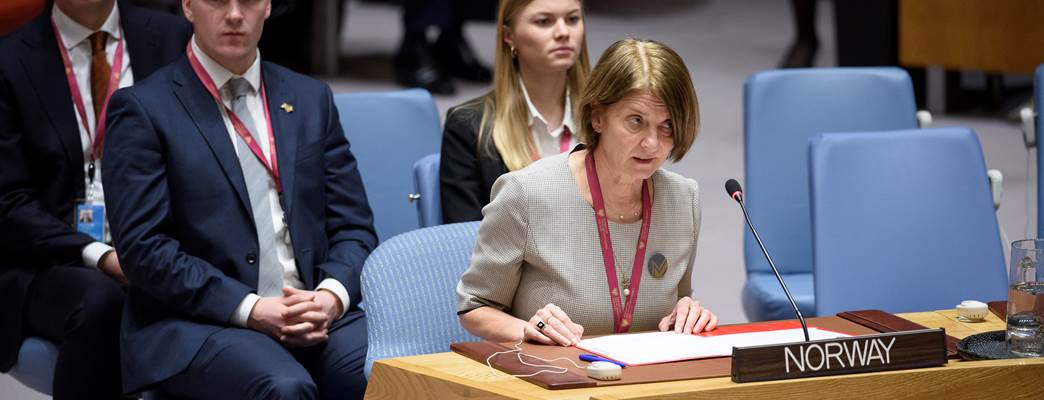Mr. President
I present this statement on behalf of the Nordic countries – Denmark, Finland, Iceland, Sweden and my own country, Norway. We would like to thank France for its continued efforts in preventing and combating the financing of terrorism and keeping this issue high up on the international agenda. We see today’s meeting as an important follow-up of the “No Money for Terror” Conference hosted by President Macron last year.
Networks such as ISIL and al Qaida continue to rely on external funding, which is essential to run their organisation, recruit fighters, buy weapons, disseminate their propaganda and move across borders. This financing must be cut off.
To identify and stop illicit financial flows to terrorist organisations and criminal networks we must disrupt the link between organised crime and terrorism. To reach this end, we believe in combining measures targeted at proceeds of crime and measures targeting financial flows to terrorists.
International cooperation is crucial. All countries must implement relevant Security Council resolutions. To ensure comprehensive and effective cooperation, we must utilise regional instruments and existing legal mechanisms to exchange information, provide mutual legal assistance and form joint investigation teams.
To effectively counter terrorist financing it is vital to strengthen the exchange of information and financial intelligence and respond quickly to requests for cooperation. When evidence of value to another country is uncovered, it should be speedily shared, paying particular attention to the quality of the information.
By assisting one another to develop our national counter terrorist financing systems, we can secure a holistic approach to international cooperation. We need to make sure that our financial intelligence units have the technology needed to analyse information, recognise and uncover trends, patterns and indicators of terrorist financing, and the ability to share this information across borders.
We need to improve our partnership with civil society and the private sector in this regard and ensure that our efforts avoid discouraging or disrupting legitimate civil society activities.
We must also take into consideration the concerns raised by humanitarian actors about the unintended negative impact that measures to prevent and counter terrorism financing can have on their ability to address humanitarian needs and implement programming according to humanitarian principles.
We encourage expanding the toolbox and developing initiatives for dealing more effectively with the nexus between terrorism and organized crime. Such tools may include information sharing, criminal justice and border controls, and addressing radicalisation. The different aspects of these global security challenges are connected. They must be addressed both within the security pillar and as part of advancing Agenda 2030.
Thank you.
